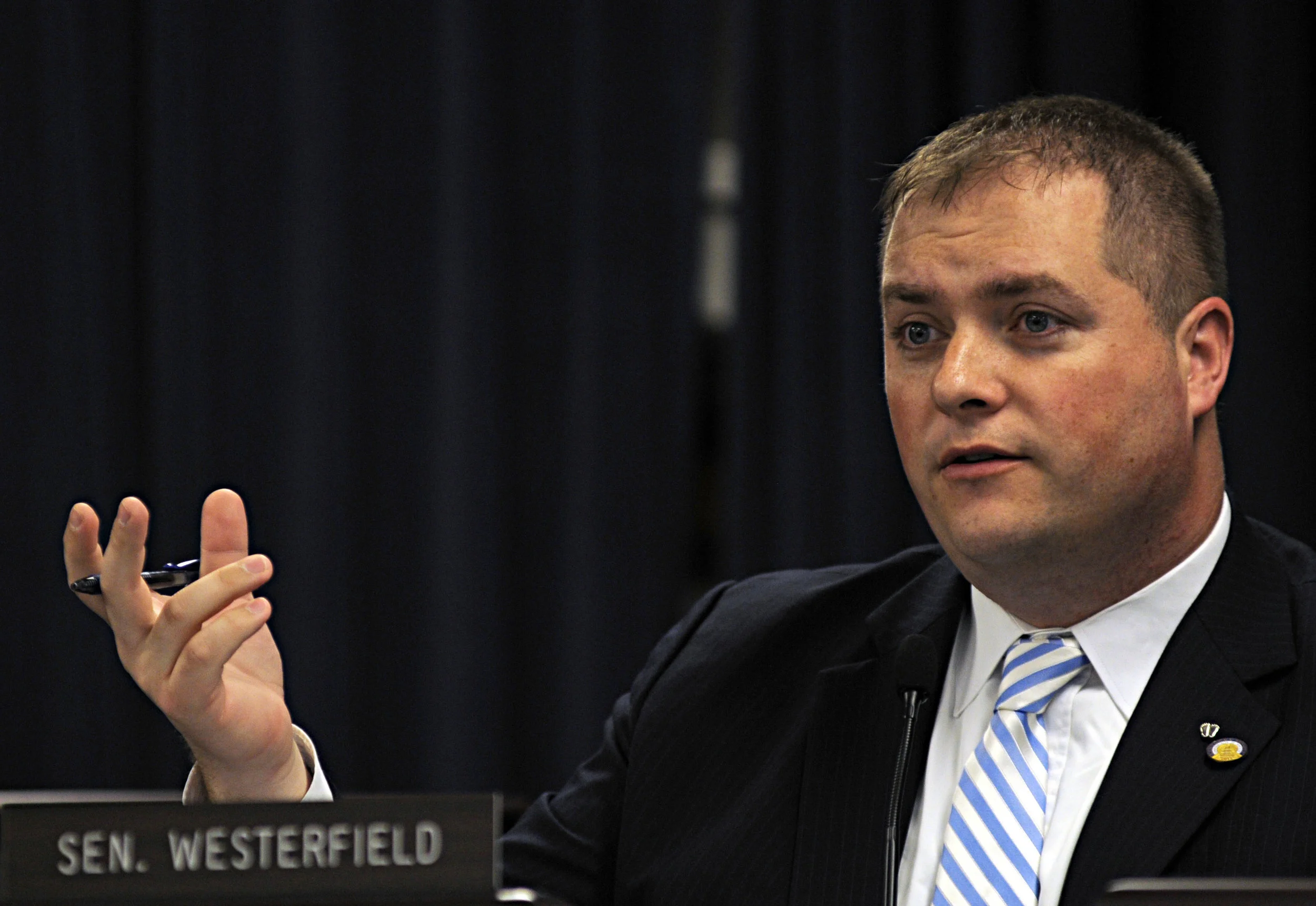We kicked off week nine of the 2020 Regular Session with a visit from two special guests in the Senate chamber, Save the Children Action Network President, Mark Shriver and award-winning actress, Jennifer Garner. Many might not know that Jennifer Garner grew up in West Virginia where she witnessed the effects of generational poverty on children, similar to those we see in rural Kentucky. With the help of local advocates, Ms. Garner and Mr. Shriver are working to preserve funding for Save the Children’s early childhood education and literacy programs, which serve more than 12,000 children throughout the Commonwealth. It was an honor to welcome them to Frankfort.
The Kentucky General Assembly crossed another mile marker this week by reaching the deadline to file new bills. Slightly less than 1,000 bills were filed — 286 Senate bills and 647 House bills. With the bill filing deadline behind us, we now have a more complete view of the issues lawmakers will take up this year. There are sure to be tough decisions and compromises made in the final weeks ahead.
Senate Bill (SB) 2, the proposed voter ID requirement, passed in the House on Tuesday with various amendments to find a compromise among House members. However, the Senate voted to “not concur” with these changes, and is therefore asking the House to recede from its changes to the bill. If the House does not “recede,” SB 2 may then move to a conference committee, made up of both House and Senate members, for further discussion. If a compromise between chambers can be hammered out, the Conference Committee issues a new draft that then gets a vote in each chamber.
The medical marijuana bill, HB 136, was referred to the Senate Judiciary Committee this week and I’m continuing to read through the proposal, marking it up with questions and comments. I plan to meet with the bill sponsor next week to work through those concerns. Separately, House Resolution 5, which urges national drug organizations, such as the U.S. Food and Drug Administration, to expedite research into the potential therapeutic benefits and risks of using marijuana for health purposes, passed the Senate with broad bipartisan support.
Today, women make up less than 25 percent of the tech and computer science workforce. SB 193 establishes a goal of increasing participation in computer science courses by underrepresented groups, including females, minorities, students with disabilities, English language learners, and students whose families are eligible for free or reduced-price lunch. SB 193 includes the number of computer science courses or programs offered in each school, as well as the nature of those courses or programs, and the number of instructors required. I am proud to support this bill and hope to see an increase in computer science participation upon its passage.
In the healthcare space, we’ve been active on several bills including a measure which passed this week to rein in “surprise medical billing.” This occurs when patients receive care — often unwittingly — outside of their insurer’s network and subsequently get a bill for inordinate amounts of money that can potentially bankrupt a family. SB 150 seeks to stop the practice by requiring insurers to cover surprise medical billing. SB 150 would require the state insurance commissioner to establish a database of billed health care service charges, and it would provide a dispute resolution program for medical insurers and providers to work out their differences over these out-of-network charges, not the patient. While the bill isn’t as aggressive as I’d like, we hope it spares families from getting hit with bills that send them over a financial cliff.
Once again, a bill to criminalize the “doxing” of minors, SB 182, passed the Senate. By definition, doxing is the act of publicly identifying or publishing private information about someone, especially as a form of punishment, intimidation, or revenge. This legislation stems from the students in Northern Kentucky who were doxed following the posting last year of an infamous video of a student with a Native American protester in Washington D.C. The students at that school and even their families have been threatened and harassed by strangers seeking to intimidate them. SB 182 is a commonsense step to address the growing problem of cyber harassment in today’s digital-driven era, and would protect the privacy of minors.
As usual, a number of other bills moved through the Senate this week, including these:
SB 21 allows veterinarians to report the abuse of animals under their care. Currently, veterinarians are prohibited by law from reporting abuse of animals under their care unless they have the permission of the owner or are under a court order.
SB 80 is the statutory companion to the Marsy’s Law constitutional amendment (SB15), and is identical to the process from 2018 when it last passed. SB 80 lays out various implementation details for Marsy’s Law including expanding the definition of victim to include all felony offenses and the most serious misdemeanors, what happens when there are multiple victims, or who has the power to assert the victim’s rights if a victim is deceased. These statutory changes are contingent on the ratification of Marsy’s Law by the voters.
SJR 35 directs the Cabinet for Health and Family Services to establish the Task Force on Services for Persons with Brain Injuries.
SB 115 amends the statute regarding the tuition waiver for Kentucky foster or adopted children to include graduate programs and extends the eligibility time period to 10 consecutive or non-consecutive semesters up to age 28.
SB 136 requires home health aides who have not provided services to clients who have Alzheimer’s disease or other forms of dementia to complete four hours of approved dementia training.
SB 148 Requires individuals applying to claim certain agriculture exceptions to first apply for an agriculture exemption number from the Kentucky Department of Revenue (DOR). The bill further requires that DOR develop a searchable agriculture exemption number database for sellers and retailers to use for verification.
SB 159 sets regulations for the operation and maintenance of splash parks and to establish their separation from facilities with full-blown swimming pool installations.
Thank you for staying engaged in the legislative process. It is an honor to serve you in Frankfort and I welcome your questions and comments about these issues or any other public policy issue, As always, please call me toll-free at 1-800-372-7181, email me at Whitney.Westerfield@LRC.ky.gov.
###
Note: Senator Whitney Westerfield (R-Hopkinsville) represents the 3rd District including Christian, Logan, and Todd counties. He is the chairman of the Judiciary Committee. Senator Westerfield also serves as a member on the Veterans, Military Affairs and Public Protection Committee; the Agriculture Committee; the Capital Planning Advisory Board; the Natural Resources and Energy Committee; the Tobacco Settlement Agreement Fund Oversight Committee; the Program Review and Investigations Committee; the Child Welfare Oversight and Advisory Committee; the Public Assistance Reform Task Force, and as a liaison member of the Budget Review Subcommittee on Justice and Judiciary. For a high-resolution .jpeg of Senator Westerfield, please visit https://legislature.ky.gov/Legislators%20Full%20Res%20Images/senate103.jpg




